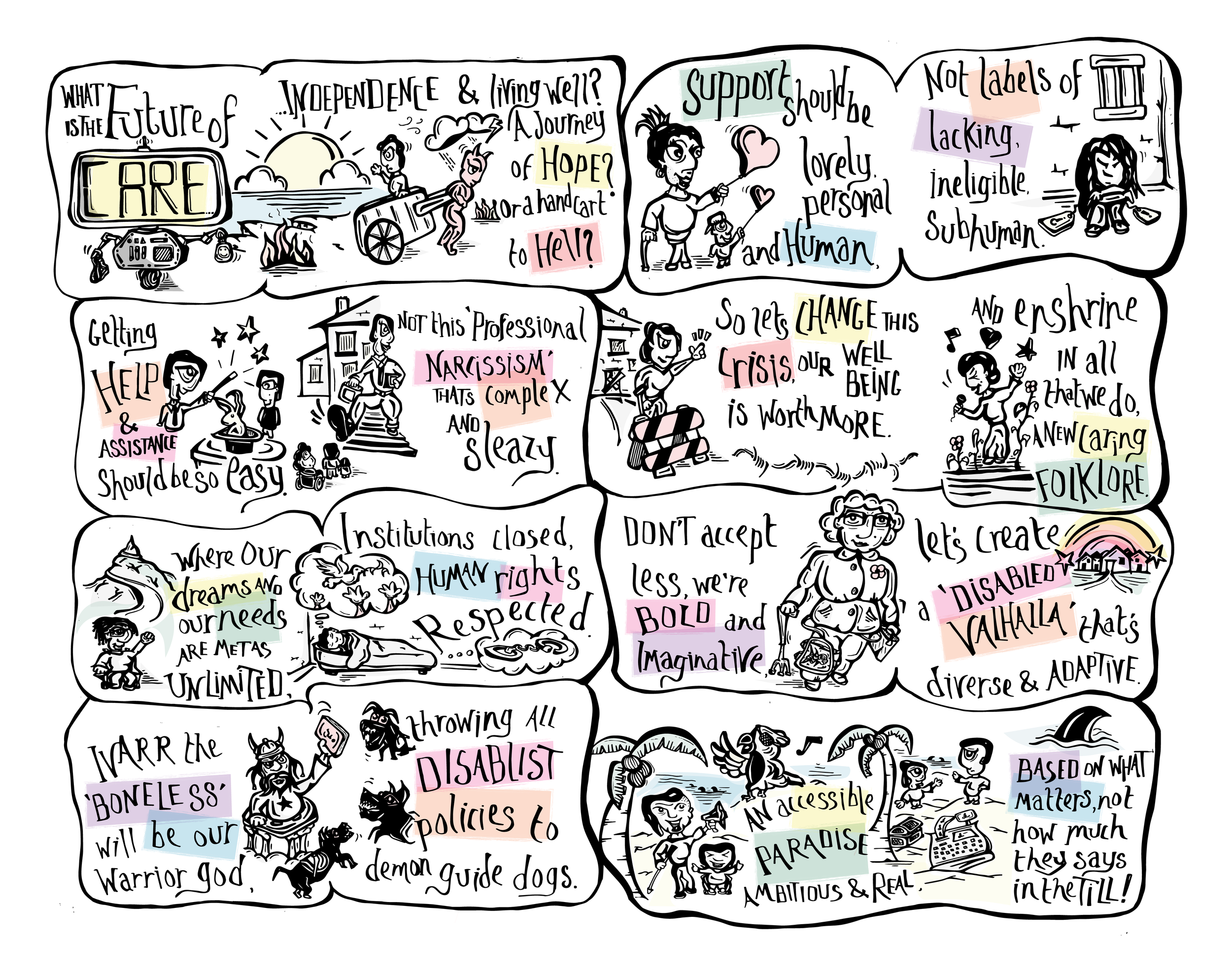The Future of Care - Hell or Hope in a Handcart?
‘Care’ is an emotive and under-resourced issue that affects all of us. We can do it well and also very badly. At its best it enables a level playing field, it heals, and empowers people to reach for the stars. At its worst it is limiting, isolating and torturous. And at the moment it is in crisis.
Commissioned in England to support Localising Human Rights in York, this collaboration focuses on the future of care. Care has multiple meanings too and people talk about care in different ways. Overworked, undervalued professional’s focus on ‘needs’, ‘functions’ and ‘safety’. Whereas ‘frustrated’ disabled people and their families just want to get on with ‘being independent and included’, ‘having a life’, ‘participating, contributing, achieving’. Disabled people and their families have shown how caring, inclusive and supportive communities can and do work. But careless budget ‘cuts’ and rationing of resources devalue support that, if invested in, would otherwise promote independence and inclusion.
So what is the future of care? What could it be? What should it not be? How does it work well? How does it fail? What do we need to do to make it better, now, soon and later?
These are the questions that artist Stephen Lee Hodgkins asked people and communities - with or without an interest in care and disability - in York, as he pulled a homemade handcart around the city and invited people to speak or draw their responses. Using the things people said, Hodgkins created a doodled summary of the themes and issues about how care is now and how it can be in the future. He was able to identify five key pillars that could make the future of care less hellish (all names have been changed):
Hopeful - Barry and Isabel, mother and son, said that what we need is ‘good love, good homes and good people’. They told me that they had a hamster once and was told that it would live for 3 years. Barry said he loved this hamster so much that it lived for 6. So if we bring love and hope, we can make literally life changing changes.
Human – Trish described themselves as a ‘positive homeless person trying to break their attachment to things’. They said they want to see less machines, more humanity and a sunny cabin that’s easy to access and open to all. A place that focuses on humans and their rights, not uncaring, pathological labels that judge and exclude on the basis of biassed values or the money in their pockets.
Easy – Ali said that they get social care support, but it’s far less than they need. The family makes up the shortfall. If they can’t cover the support, Ali is told they can go and live in a care home. The Care Act says they are entitled to support. The local authorities say they are not. Ali feels unsafe and unwell. Local officialdom says it knows best. The system could be much easier.
Imaginative - Kay says she dreams of a ‘disabled valhalla’. An accessible paradise where we acknowledge our bodies and minds as disabled by default, not ‘normal’ first or ‘broken’ as other. But where all bodies and minds can achieve positive states of wellbeing regardless. Imagining better things from the full range of lived experience offers richer opportunities for change.
Unlimited – Mik said he had symptoms of a degenerative illness but couldn’t get the tablets until he had a diagnosis. The waiting list is 18 months. Clara said she has been diagnosed with dementia and needs a home carer but can’t afford the care charges she told she’ll have to pay due to debts. Both their lifestyles are limited. So we need to rethink resources, the real cost of things and what it is we value more, wealth or our wellbeing? We must no longer limit our opportunities.












